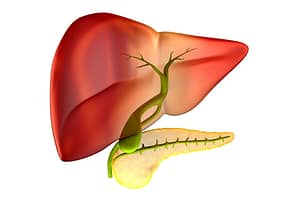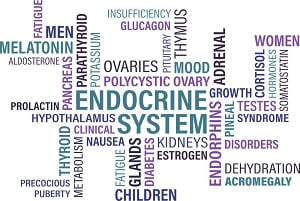Addison’s disease occurs due to under activity of the adrenal glands, due to which they are unable to produce a sufficient amount of steroid hormones in the body. An underactive adrenal gland fails to make an adequate amount of cortisol hormone in the body, responsible for controlling the metabolism of fats, proteins, and carbohydrates in the body. Cortisol hormone also has a role in controlling various immune functions in the body, such as controlling the body’s inflammatory responses. Addison’s disease also affects the sodium and potassium levels in the body because of the inactivity of adrenal glands that fail to produce normal hormone levels.
Addison’s disease can affect people of any age, including adults, children, and newborns. Addison’s disease in newborns is mainly caused due to Adrenogenital syndrome (a condition in which the adrenal glands are structurally intact and larger than normal). Addison’s disease in adults is mainly caused due to hypoplastic or diseased adrenal glands, which can also be the reason for newborn Addison’s disease.
If Addison’s disease in newborns will go undiagnosed, it will lead to a serious condition called “Addisonian crisis”, especially at the times of physical stress, in which the infants fail to produce enough adrenal hormones which in turn causes many life-threatening symptoms and can be fatal.
Symptoms of Addison’s Disease in Newborns
Addison’s disease in newborn children can result in the following symptoms:
- Failure to gain weight
- Chronic dehydration
- Sluggish behavior
- Weakness
- Episodes of diarrhea
- Vomiting
- Skin pigmentation
- Abdominal pain
- Anorexia
- Failure to thrive
- Craving for salts
Newborn children diagnosed with Addison’s disease have to manage their symptoms throughout their lives. However, if the disease goes undiagnosed in childhood, it may result in the following serious symptoms:
- Extreme weakness
- Hypotension
- Renal failure
- Severe abdominal pain
- Hypovolemic shock
What Causes Addison’s Disease in Newborns?
Addison’s disease in newborns or pediatric adrenal insufficiency has many causes, such as congenital or acquired disorders of the pituitary, adrenal cortex, or hypothalamus. One of Addison’s disease’s main causes, also called adrenal insufficiency (AI) in newborn children, is the destruction or dysfunction of the adrenal cortex. Other causes include diseases of the pituitary gland or hypothalamus (secondary adrenal insufficiency).
If Addison’s disease is caused due to destruction or dysfunction of the adrenal cortex, it is called primary adrenal insufficiency, while if it is caused due to damage of the pituitary or hypothalamus, it is called as secondary adrenal insufficiency. Primary adrenal insufficiency in children is mainly caused due to congenital adrenal hyperplasia (CAH), a condition caused due to deficiency of several enzymes essential for the adrenal synthesis of cortisol hormone. CAH affects the three zones of the adrenal cortex that are responsible for releasing adrenal hormones. Infants affected by CAH related primary adrenal insufficiency in the second week of their life present the following symptoms:
- Dehydration
- Weight loss
- Hyponatremia (low sodium)
- Hyperkalemia (excess calcium)
- Hypoglycemia (low sugar)
How Can We Diagnose Addison’s Disease in Newborn Children?
Addison’s disease’s signs and symptoms in infants are mostly non-specific, but there are various methods that can help in its diagnosis. Serum electrolytes can be analyzed for diagnosing primary adrenal insufficiency, as hyponatremia with or without hyperkalemia is often found in primary adrenal insufficiency. Hyponatremia is a common symptom of primary insufficiency in newborn children and is caused due to aldosterone deficiency. Both primary and secondary adrenal insufficiencies present hypoglycemia symptoms in newborns, but primary adrenal insufficiency shows more pronounced hypoglycemia and growth hormone deficiency. Patients with adrenal insufficiency also show impairment in gluconeogenesis and hepatic glycogenesis due to which hypoglycemia may be associated with ketosis.
One of the major diagnostic tests for Addison’s disease is the measurement of serum cortisol levels. It is suggested that a morning cortisol level of less than 3 ug/dL may be an indicator of adrenal insufficiency while cortisol levels greater than >18 mcg/dL rules out adrenal insufficiency. Primary adrenal insufficiency is confirmed if the serum cortisol levels are found < 18 mcg/dL, along with markedly increased ACTH and plasma renin activity levels.
In addition to this, the following dynamic tests may help in diagnosing Addison’s disease in newborns:
ACTH Stimulation Test
This is one of the most commonly used diagnostic tests for evaluating adrenal function. In this test, patients are administered with cosyntropin (an artificial form of ACTH) for stimulating the release of adrenal cortisol. Plasma cortisol levels ≥ 18 μg/dL (along with baseline ACTH level) rules out primary adrenal insufficiency. In newborns suffering from congenital hypopituitarism, adrenal function test using 1 µg ACTH stimulation test, maybe falsely normal if performed for diagnosing deficiency of ACTH during the postnatal period. Therefore, clinicians should always maintain a high degree of suspicion for false-negative testing and repeat the ACTH stimulation test within 3 to 4 weeks after prior testing to timely diagnose adrenal insufficiency in these infants.
Glucagon Stimulation Test
This is a sensitive test for evaluating the adrenal function. It is not associated with hypoglycemia and may be used as an alternative to insulin-induced hypoglycemia for evaluating central adrenalism. This test has a high false rate in infants (almost 23.7%). Therefore, the interpretation of this test can be problematic in children.
Insulin-Induced Hypoglycemia
This test involves glucose infusion for checking diagnosing hypoglycemia related to adrenal insufficiency. But it is found that this test may cause hypoglycemic seizures and severe hypokalemia in children after they are treated with glucose infusion. Therefore, this test is no longer used in children.
Metyrapone Test
It is one of the excellent tests for evaluating the integrity of adrenal function, but it is rarely performed these days because metyrapone is not readily available, and also there is a risk of adrenal crisis with it.
Treatment of Addison’s Disease in Newborn Children
Following treatment options are available for Addison’s disease in newborn:
Maintenance Therapy
This is used for treating primary adrenal insufficiency in which the patients are given both glucocorticoids and mineralocorticoid replacement therapy.
Hydrocortisone Therapy
Hydrocortisone therapy is mostly preferred in children because it has a short half-life and fewer side effects compared to other potent longer-acting glucocorticoids.
Dexamethasone and Prednisone
Dexamethasone is used for treating AI (adrenal insufficiency) patients when they are undergoing a diagnostic ACTH stimulation test. Prednisone is used in cases where hydrocortisone is not suitable and creates problems.
Fludrocortisone Therapy
This therapy is used in children who have primary adrenal insufficiency and a confirmed aldosterone deficiency. Fludrocortisone therapy has both mineralocorticoids and potent glucocorticoid activity. However, it is dangerous if given in excessive amounts and may result in many complications such as hypervolemia, edema, and hypertension.
Salt Supplementation
Salt supplementation is given to newborn children in several feedings up to 8 to 12 months because of low salt content in their mother’s breast milk and infant formulas. The immature infant kidneys are resistant to mineralocorticoids and need a sodium chloride supplement at 1 to 2 grams per day.
FAQs
How Do I Know if My Child Has Addison's Disease?
Your child may be at risk of Addison's disease if he has following symptoms:
- Muscle weakness
- Chronic dehydration
- Hypotension
- Weight loss
- Salt cravings
- Hyperpigmentation
What Happens in an Addison's Crisis?
Adrenal crisis may occur during the time of physical stress and due to which the body stops producing adrenal hormones, which in turn leads to the following symptoms:
- Fainting
- Dizziness
- Confusions
- Circulatory failure
- Kidney failure
How Do They Test for Addison's Disease?
Addison's disease can be diagnosed with the help of the following tests:
- Blood tests for measuring the levels of sodium, potassium, antibodies against autoimmune Addison's disease
- ACTH stimulation test
- Glucagon stimulation test
- Insulin-Induced Hypoglycemia
- Metyrapone Test
Is ACTH High or Low in Addison's disease?
Adrenal insufficiency or Addison's disease is characterized by insufficient adrenal hormones production despite normal or increased ACTH levels.
What Mimics Addison's Disease?
Many diseases can mimic Addison's disease. Some of them may include the following:'
- Congenital adrenal hyperplasia
- Familial glucocorticoid deficiency
- Congenital lipoid adrenal hyperplasia
- X-linked adrenoleukodystrophy
- Triple A syndrome




